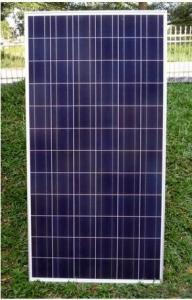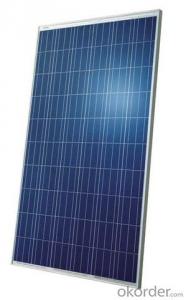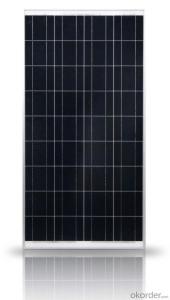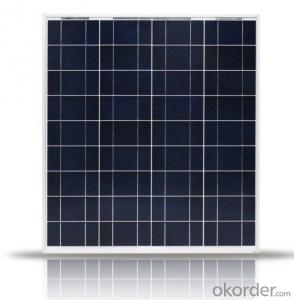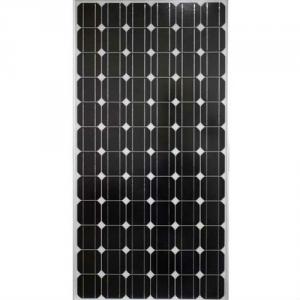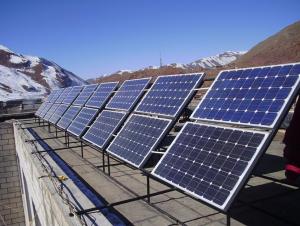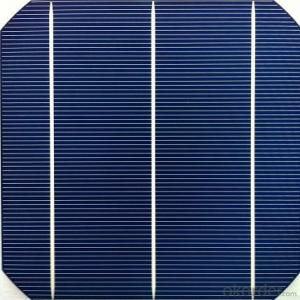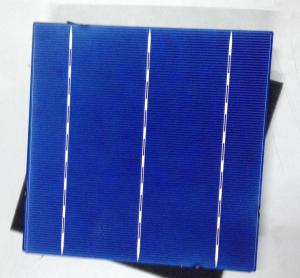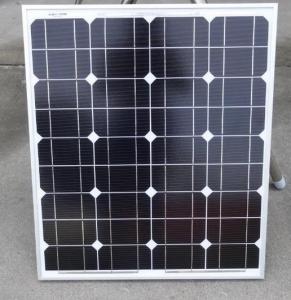CNBM Poly 150W Solar Panel With ISO Certificate For Residential
- Loading Port:
- Tianjin
- Payment Terms:
- TT OR LC
- Min Order Qty:
- 100 watt
- Supply Capability:
- 20000 watt/month
OKorder Service Pledge
OKorder Financial Service
You Might Also Like
Item specifice
CNBM Poly 150W Solar Panel With ISO Certificate For Residential
Introduction
This is a kit using for factory and storage field. this product is a higher output version with stable power and we guarantee you for 20years.
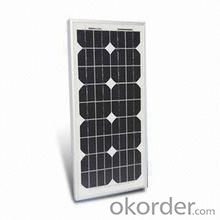
Suggested application
Home lighting business lighting,
Garden lighting, pavement lighting
Farmer household lighting
Decorative water pump
Traffic signal lighting
industry area
business area
Solar Power Plant
Product feature
he modules are made of Monocrystalline or Polycrystalline Silicon cell.
Materials and color of the solar panel frame: Clear anodized aluminum alloy type 6063T5 Universal frame; Silver-white color;
The output connection gathers the coupling: Selects conforms to the IEC-612615; 2005, class II, IEC61730 international standard; Airtight waterproofing binding clamp;
Module seal structure: The surface is thick, the high diaphanous rate armored glass with solar cell board special-purpose 3.2mm becomes after the high temperature lamination craft. The back selects has waterproof and anti- aged performance fine TPT materials. The entire block battery board has, the waterproofing, the anti- aging airtight and so on the fine performance;
Power tolerance: +/-3%
Packaging
International standard cartons(according to the requirements of customers )
- Q:How do solar cells perform in extreme temperatures?
- Solar cells can be affected by extreme temperatures, both hot and cold. High temperatures can decrease the efficiency of solar cells and reduce their power output, while very low temperatures can also impact their performance. However, modern solar cell technologies have been developed to minimize these effects and ensure better performance even in extreme temperatures.
- Q:Is the Photovoltaic cell panel good to save the energy?
- The Photovoltaic cell panel is actually very much developed for saving the energy. After several years of research and development, the third generation solar cells (including various semiconducting properties at the molecular level of the material) has already being used.
- Q:Can solar cells be used for powering oil rigs?
- Yes, solar cells can be used for powering oil rigs. Solar panels can harness sunlight to generate electricity, which can be utilized to power various equipment and systems on oil rigs, reducing reliance on traditional fossil fuel-based generators and minimizing environmental impact. However, the feasibility and effectiveness of implementing solar power on oil rigs depend on factors such as energy requirements, geographic location, available space, and cost considerations.
- Q:Can solar cells be used in electric fences?
- Yes, solar cells can be used in electric fences. Solar cells can convert sunlight into electricity, which can power the electric fence energizer. This eliminates the need for a constant power supply or batteries, making it a sustainable and cost-effective option for powering electric fences.
- Q:What is the impact of temperature fluctuations on solar cell efficiency?
- Temperature fluctuations can have a significant impact on solar cell efficiency. Generally, as temperatures rise, the efficiency of solar cells decreases. This is because higher temperatures can increase the resistance of the materials used in the solar cell, resulting in a decrease in the conversion of sunlight into electricity. Additionally, excessive heat can cause thermal stress and degradation of the solar cell's components, further reducing its efficiency over time. Therefore, temperature regulation and cooling mechanisms are crucial in maintaining optimal solar cell performance and maximizing energy production.
- Q:Can solar cells power an entire house?
- Yes, solar cells have the potential to power an entire house. With advancements in technology and proper installation of solar panels, it is possible to generate enough electricity to meet the energy needs of a household. However, the feasibility of this depends on various factors such as the size of the solar panel system, the energy consumption of the house, and the availability of sunlight in the area.
- Q:Can solar cells be used underwater?
- No, solar cells cannot be used underwater as they rely on sunlight to generate electricity. Water blocks sunlight and prevents the solar cells from functioning effectively.
- Q:Have you ever been to a solar cell power generation station?
- Of course, I've been there at least 3 times.
- Q:Do solar cells require maintenance?
- Yes, solar cells do require some maintenance. Regular cleaning of the solar panels to remove dust, debris, or any shading objects is necessary to ensure optimal sunlight absorption. Additionally, occasional inspection and maintenance of the electrical connections, inverters, and batteries (if present) may be required to ensure efficient and uninterrupted operation.
- Q:How much do solar cells cost?
- The cost of solar cells can vary depending on various factors such as the type and size of the solar cell, location, installation costs, and any additional equipment needed. On average, solar cells can range from a few hundred dollars for small, portable units to thousands of dollars for larger, more efficient panels. It is important to consider the long-term savings and benefits of solar energy when evaluating the cost.
1. Manufacturer Overview |
|
|---|---|
| Location | |
| Year Established | |
| Annual Output Value | |
| Main Markets | |
| Company Certifications | |
2. Manufacturer Certificates |
|
|---|---|
| a) Certification Name | |
| Range | |
| Reference | |
| Validity Period | |
3. Manufacturer Capability |
|
|---|---|
| a)Trade Capacity | |
| Nearest Port | |
| Export Percentage | |
| No.of Employees in Trade Department | |
| Language Spoken: | |
| b)Factory Information | |
| Factory Size: | |
| No. of Production Lines | |
| Contract Manufacturing | |
| Product Price Range | |
Send your message to us
CNBM Poly 150W Solar Panel With ISO Certificate For Residential
- Loading Port:
- Tianjin
- Payment Terms:
- TT OR LC
- Min Order Qty:
- 100 watt
- Supply Capability:
- 20000 watt/month
OKorder Service Pledge
OKorder Financial Service
Similar products
New products
Hot products
Related keywords
